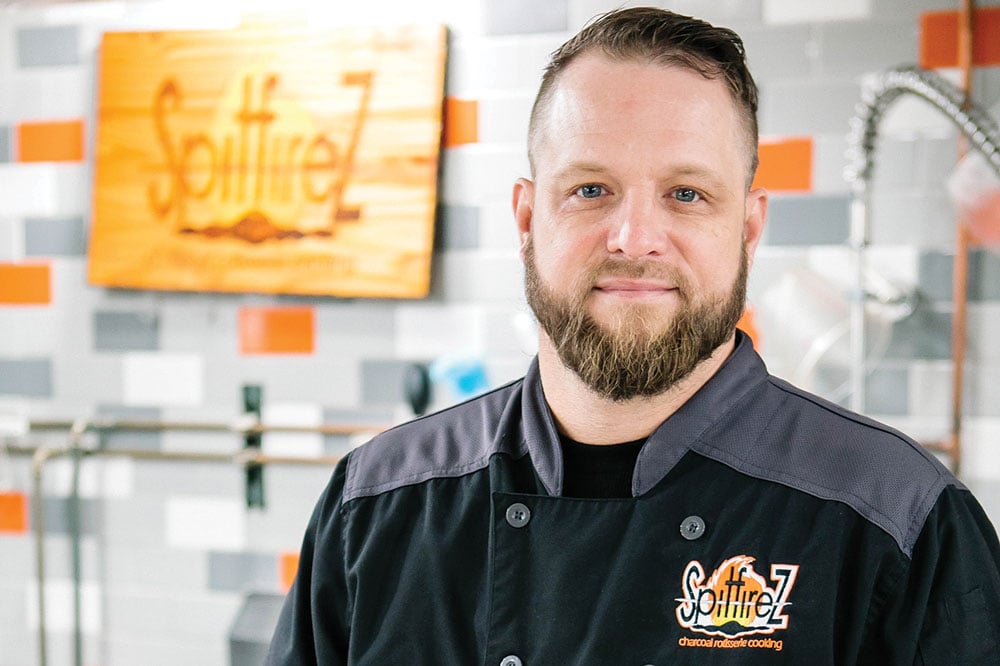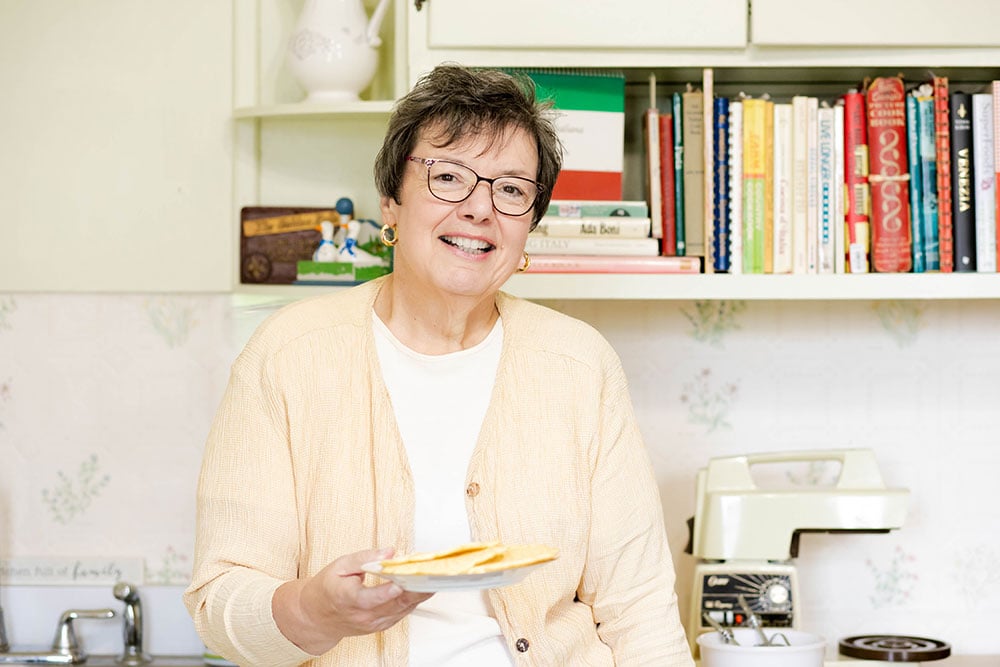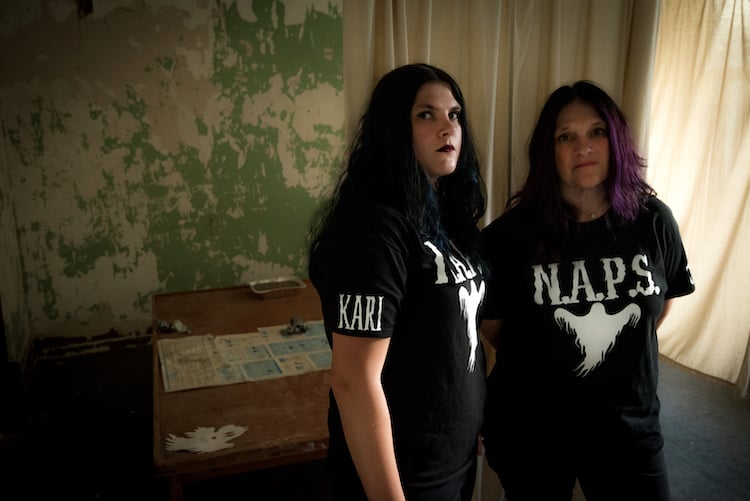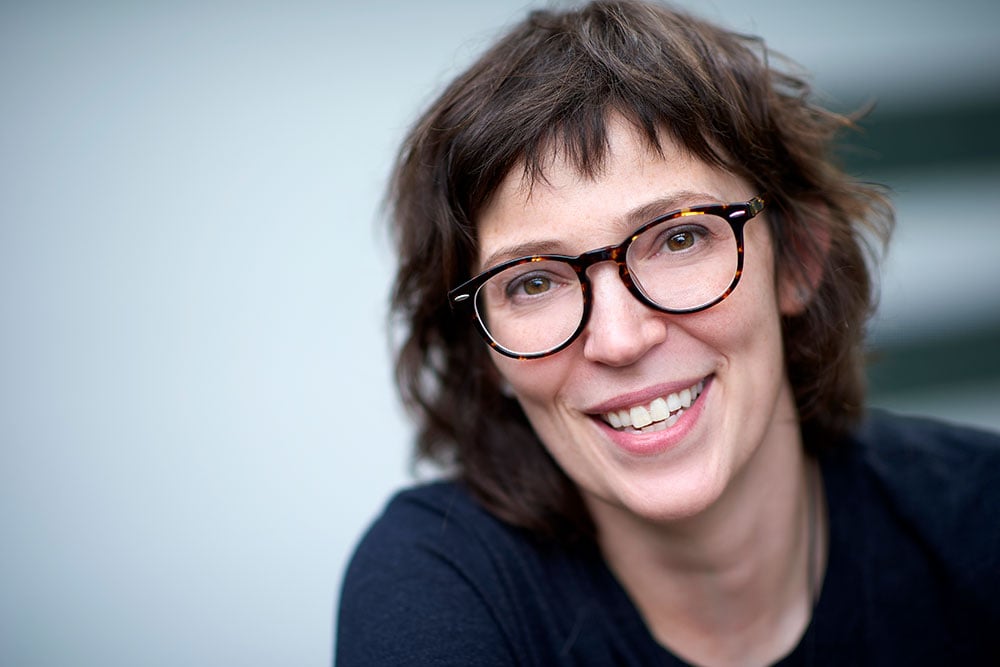Stories of Our Neighbors: Who Knows Where I’m Going Next?
Dr. Ritu Thamman talks about empathy, forgiveness and the healing power of stories.
When world-renowned cardiologist and author Dr. Ritu Thamman talks about the heart, she speaks as both a physician and a writer.
“The heart as metaphor. The heart as machine. It’s the essence of who I am,” says Thamman, 54. “The heart as a machine has a very precise job to do. But the heart is also the metaphoric place where empathy comes from.”
People’s capacity for empathy has been tested lately, says Thamman, who teaches courses in narrative medicine as part of University of Pittsburgh’s Medical Humanities program and lives in Squirrel Hill with her husband and fellow physician, Andrew Watson, and their daughter, Shivani.
“But our world has always been crazy,” Thamman says. “I think hard times provide us with an opportunity. We can practice empathy and forgiveness. We can become better people. It’s not all negative.”
She pauses, then smiles. “As you see, my goal is to be a wise doctor by the time I’m 80.”
At the beginning of the pandemic, I lived on Twitter, with epidemiologists and scientists saying, “This is serious, this is real.” Everything is happening now.
Even the literature I used to teach — Camus’ “The Plague” for example — felt immediate. A plague rolls in. A plague rolls out. No one knows where it came from or why. Everything became surreal.
So here we are in the second year of this pandemic. Sometimes it feels like we’re never going back. What does pre-COVID, pre-anything, even mean? Will we ever be traveling the world again? Or will our world keep shrinking down?
I have a daughter. She’s a senior in high school, a time when she’s forming her own identity and coming of age. But how do our children express themselves now? How do they see their futures? How has this all affected their development? I don’t know.
And then there are the horrible injustices. When someone comes to see me and says, “I refuse the vaccine!” and I know people whose lives could have been saved, that the millions of vaccines thrown out could have saved people in poorer countries? That’s hard for my heart to handle.
Lately, empathy feels like something that must be consciously replenished inside yourself. Otherwise, how can we go on?
I try hard not to judge. I try to step back and remember I’m just a passing entity on this earth. I’m doing my duty, explaining what I know. It’s not my karma if people refuse help. I try to let go of consequence, of expectations. I try not to be too attached. I’m trying.
We’re all going through this together. And in some ways, that’s unifying. We’re all suffering together. We’ve all had to learn to savor small moments. Maybe that’s something.
When I talk about practicing forgiveness, I mean for others but also for ourselves. I don’t exercise the way I used to. I have aches and pains. I feel my own mortality daily. I’ve learned to be gentler with myself.
The vaccine gave us such hope. It was a miracle, 20 years of research that came together in six months. All that hope, and now we’re still in this mess? It’s hard not to get discouraged.
I’ve lost a lot of patients to COVID, some because of age, underlying comorbidities, some unexpected ones. I haven’t seen many who are coming in saying, “I didn’t take the vaccine and I should have.” But I have friends who are seeing those kinds of cases. People are burning out. There’s only so much you can bear.
For physicians, talking and writing helps. Writing especially allows us to manage suffering and be in the presence of it at the same time. As a doctor, my patients become part of me. Their stories become my story, part of my fabric. Writing keeps them alive for me in some way.
I had a long-standing patient. His goal was to live forever. He made it to his 90s, then he got COVID and passed away. He had such a zest for living. He was someone who kept going and kept me going. He had significant coronary disease and heart failure. I didn’t expect him to live as long as he did. But some people have such love for this life.
Empathy is so important. But empathy is a dual-edged sword. It makes you very sensitive, prone to lows. It’s easy to take on the sadness of the world.
When I see patients who can’t afford anything, I treat them anyway. All doctors do that kind of service. It’s a way to not feel helpless. There is this sense of karma. So I was born and I have this nice life, all these material things. But who knows where I came from before? And who knows where I’m going next? For me, that is the foundation of empathy.
There was one patient, a nun, a very strong Catholic. The first time she met me, she was horrified. Here I was, she thought I was this pagan. I said, “Well, my family’s from India,” and she said, “I went to India as a missionary and I got cholera.”
She had cancer. It was in her heart. She kept getting worse. I would go in to see her every day. I’d ask her questions about her life and try to talk with her. Slowly she came around. When she got news that the cancer had grown, she asked me to say a prayer to my gods in my language. I said of course I would.
Sometimes patients say or do things you’re not expecting. It was a transformation for her to accept there was no way out of this, whether she prayed to her God or mine.
I can pray to whatever God. I believe it’s all one. I can pray for us all in any language.
For more about Dr. Thamman, visit: thamman.com
Lori Jakiela is the author of the memoir “Belief Is Its Own Kind of Truth, Maybe” and several other books. She lives in Trafford and directs the Creative and Professional Writing Program at Pitt-Greensburg. For more, visit: lorijakiela.net.
If you know someone who would like to share their story, or if you’d like to share your own story for this monthly series, reach out to us at: pghstories@gmail.com.















